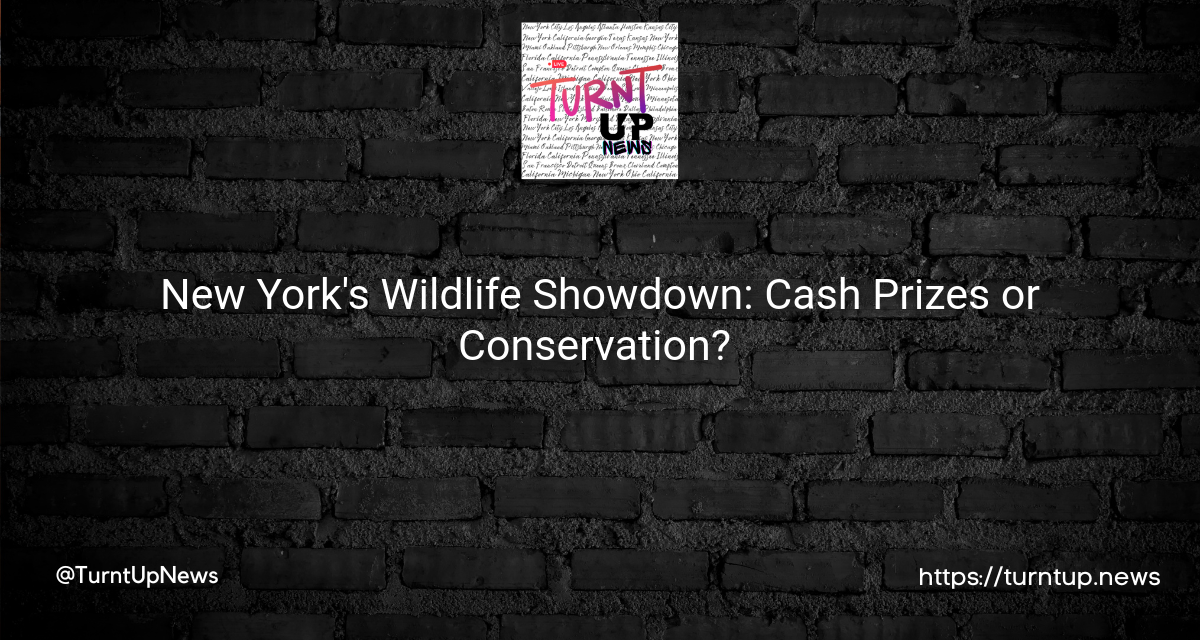New York’s Wildlife Showdown: Cash Prizes or Conservation? 🐺💰🚫
TL;DR; Proposed ban on cash-prize hunting contests in New York has set off a debate between animal rights activists and rural communities. Is it just rural tradition or an unethical blood sport? 🏞️ vs. 🦊
Deep in the woods of upstate New York, the thrill of the hunt takes on an added incentive—cash prizes. Competitions with catchy titles like Predator Slam and Squirrel Scramble are all the rage, with hunters looking to snag the chunkiest coyote or the most impressive squirrel bunch. But is the lure of dollar signs overshadowing a respect for nature? 🌲
Animal rights activists are pointing their crosshairs at these contests, describing them as needless massacres. 🚫 And while cash-prize hunts are already banned in eight states, eyes are now on New York, where Governor Kathy Hochul is mulling over a recent proposal approved by the Legislature.
The big question is, why turn wildlife into a means of profit? Brian Shapiro of the Humane Society of the United States ponders, “Do we commoditize our natural resources for some greenbacks?” 💵
Opponents aren’t just rallying against the thrill of the hunt. They’re targeting contests across upstate NY that, in their eyes, senselessly target wildlife from coyotes to raccoons. And let’s not forget the campaigns showcasing the grim aftermath, with images of lifeless coyotes heaped together. A disturbing sight or just the circle of life?
Yet, there’s another side to this coin. Rural residents argue that this divide is rooted more in emotion than logic. David Leibig of the New York State Trappers Association believes the real issue is misunderstood. 🤷♂️
“These events bring families together and boost community funds. So why call them blood fests?” he questions.
Historically, these contests have been American traditions for years. Only a “minority” of New York’s hunters partake in these contests, says Shapiro. Yet with bans on such contests in states like California and Colorado, is NY next? And while Oregon may cast its vote soon, NY’s proposed ban would only outlaw organizing or participating in wildlife competitions for prizes. But what about white-tailed deer or bears? Well, they’re off the hook for now. 🦌🐻
Some claim that these contests are more than just games; they’re vital fundraisers. Sullivan County, for instance, holds a three-day coyote hunt which garners up to $12,000 for local youth programs and the fire department. John Van Etten, a local sportsmen’s club president, asserts, “Those against such contests lack understanding.”
Moreover, isn’t controlling wildlife populations a valid reason? Especially when it comes to notorious livestock predators like coyotes? 🐄 But ban advocates counter with a peculiar twist: these contests might boost coyote reproduction by destabilizing packs!
As the clock ticks, Governor Hochul is studying the bill alongside others she might sign this year. The narrative that city folk are imposing their values on rural communities is gaining traction, especially among Republicans.
Yet, Brian Shapiro challenges the narrative. “Is this really an urban versus rural clash, or just an imaginary divide?” he questions.
And that brings us to the crux of the matter: Is this ban a needed move towards conservation, or a misplaced attack on hunting traditions? 🌳 vs. 🎯
So, dear readers, we ask you: In the ever-changing landscape of conservation ethics and traditions, where should the line be drawn? And is it even our place to draw one? 🤔





